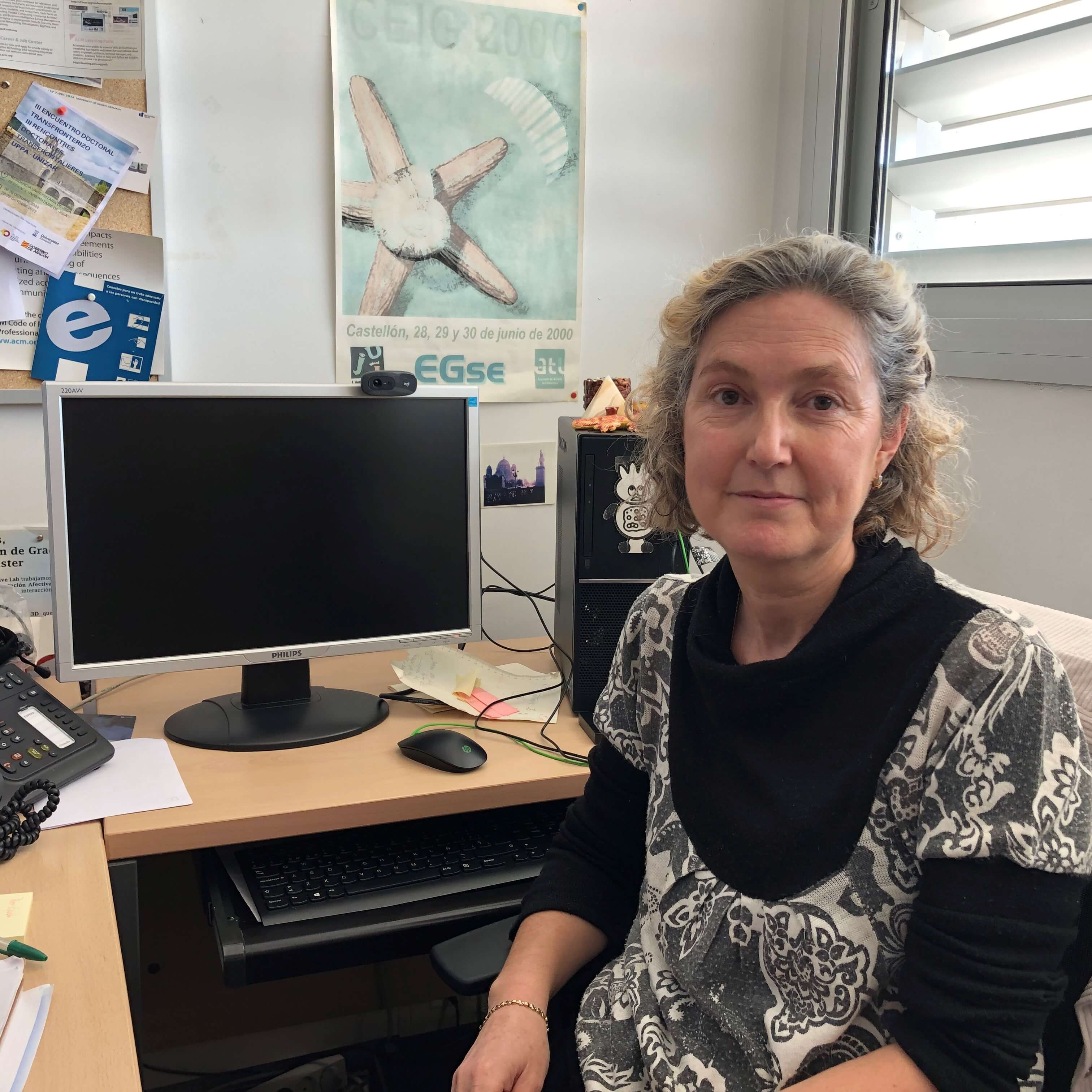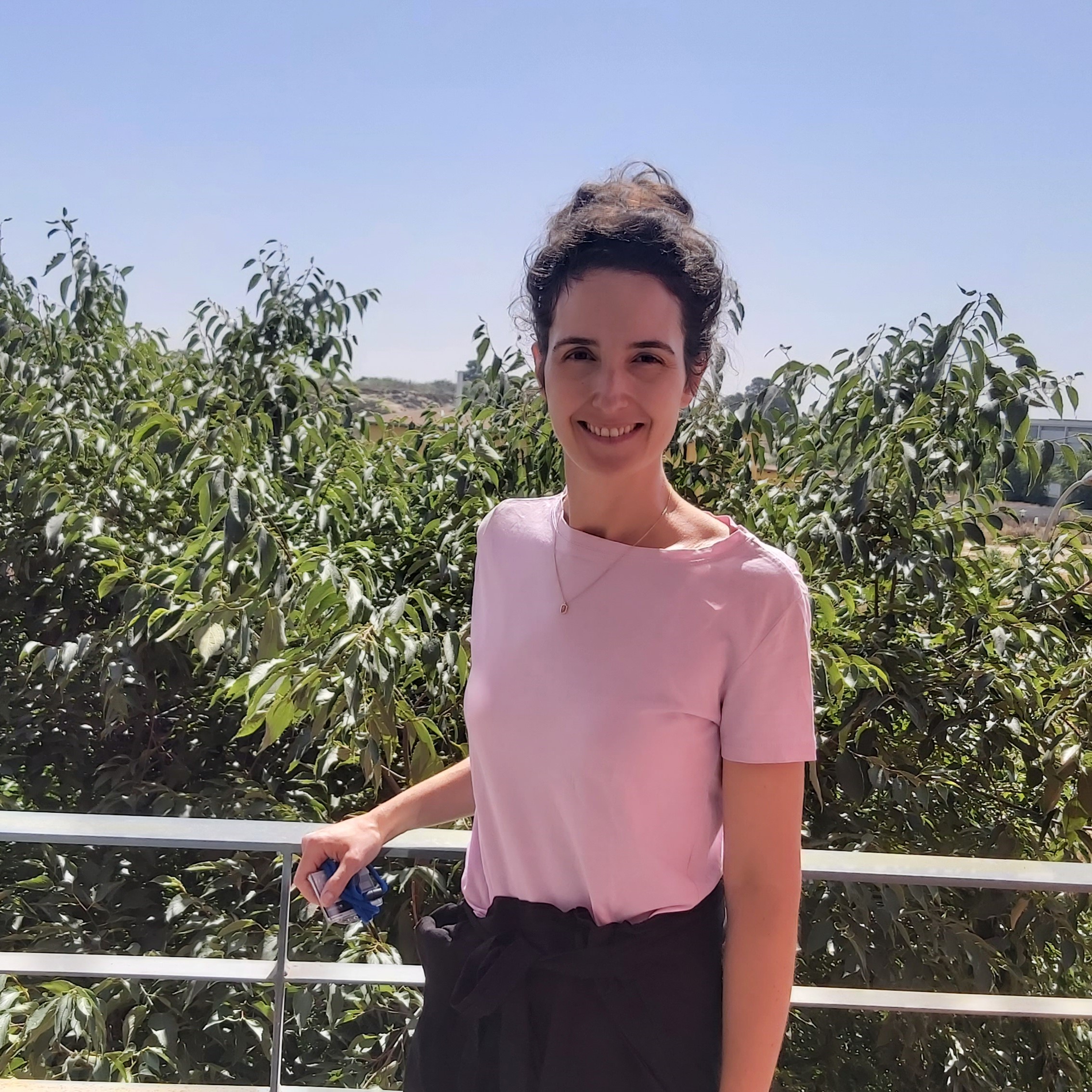
Why did you decide to go into research?
When I finished my studies, I wanted to continue to be linked to the university in some way. Besides, my father has been a university professor, so I knew what the world of research was like and I was also attracted to it. And then I got funding to do my thesis and I stayed here.
How long have you been linked to the I3A?
I got my PhD in 2002 and I must have started after my doctorate, so I guess since 2005.
Was it always clear to you what you wanted to do?
Since I was a child I liked being a teacher. I like working at the university because you do research and teaching at the same time and I love the combination of both.
You are the principal investigator of the Affective Lab research group, what do you research there?
Mainly human-computer interaction. This is the branch of computer science that focuses on the users of computer systems. We deal with issues such as usability and accessibility, that is, making systems usable and satisfactory for people. We work, above all, with users who have special needs, for example, children with ADHD or communication problems and also with elderly people who have cognitive or physical problems.
Any ongoing project that you would like to highlight.
The last national project we have been involved in is the Pergamex project, which is aimed at developing pervasive interactive experiences of a ludic type based, for example, on voice assistants or virtual characters. Specifically, I was working on the design of intergenerational interactive experiences: we try to bring grandfathers and grandmothers together with grandsons and granddaughters to play together with new devices. These technological experiences are always very interesting for both children and adults, as they increase communication between generations and also avoid situations of ageism, which are those prejudices that young people have towards older people and vice versa.
I like to feel that what we do is close to the users.
What would you highlight about the institute?
The institute has very diverse groups, so we can tackle projects where everyone brings their best, for example, we collaborate a lot with the DisCo group (Distributed Computing R&D Group).
What do you enjoy most about your profession?
Combining teaching with research is what I enjoy the most, and also the transfer. In the group, we do what I call "social transfer", we work with associations, NGOs, special education schools, early care of the Government of Aragon.... I like to feel that what we do is close to the users and, therefore, being able to help with technological developments to groups that are often left out is very gratifying.
And what's the least?
I don't like the stress... There is a lot of administrative work that we have to end up doing as principal investigator and you spend a lot of time. And then there are also a lot of project deadlines that are very stressful.
Research is a medium-term investment. The beginnings are hard, but then it is an interesting and enriching job in which you are constantly evolving.
Are there many women in research?
In Computer Engineering, the low number of female students and professors is very striking. In terms of female students, we have been at around 10% for some time now, whereas in Computer Science we have reached 20% of women in the past.
What would you say to someone who is thinking of going into research?
Everyone has to dedicate themselves to something they like. Then if you like it, you will be good at it and you will have opportunities. I would say that research is a bit of a medium-term investment. The beginnings are usually hard, because getting money to start a PhD thesis is not always easy, and even if you get it you never make as much money as you could be making in a company. But, in the medium term, it is an interesting and enriching job in which you are constantly evolving. I have many friends who work in other fields and when you have been working in the same job for many years you get bored. Research allows you to be doing interesting things and, in addition, to be very autonomous, for instance, I have changed my lines of research.
Up close:
What did you study and where: I studied Physical Sciences at the University of Zaragoza and then I did my PhD in Computer Engineering.
Do you like reading?: Yes, what I read most are crime novels and especially those by Nordic authors.
A singer or group: When I was younger I really liked U2 but now I listen to a bit of everything and, unfortunately, because of my children, lately a lot of reggaeton.
A serie: This is Us is a very good serie that makes you think.
What do you do in your free time: I do Taichi and meditation.
A trip: Armenia. I am an adoptive mother and I had to make a series of trips to this country to adopt my children, so these trips have a very important emotional component.
Favorite place: Menorca, since I was born, I go there every summer because my father's family is from there. It is a place where I have special feelings.
How would you define yourself: As a constant person.
